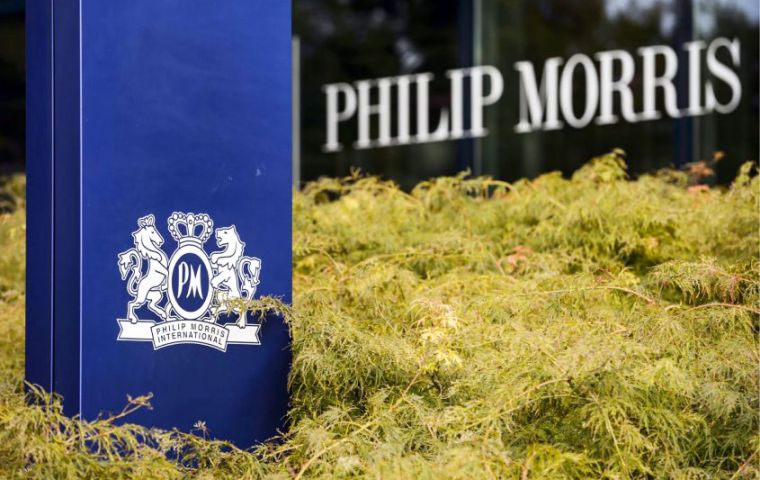MercoPress. South Atlantic News Agency
Philip Morris ordered to pay Australia millions after losing packaging lawsuit
 Philip Morris has now been ordered to pay the government's legal costs. The court decision recalls a similar case a year ago when Uruguay won a landmark lawsuit
Philip Morris has now been ordered to pay the government's legal costs. The court decision recalls a similar case a year ago when Uruguay won a landmark lawsuit Tobacco giant Philip Morris has been ordered to pay the Australian government millions of dollars after unsuccessfully suing the nation over its world-first plain-packaging laws.
In 2012, Australia legislated that cigarettes must be sold in unappealing packets with graphic health warnings. Philip Morris had tried to force the laws to be overturned, but a court dismissed its claim in 2015.
The tobacco giant has now been ordered to pay the government's legal costs. The court decision recalls a similar case a year ago when Uruguay won a landmark lawsuit against Philip Morris.
The exact sum was redacted from the international Permanent Court of Arbitration (PCA) decision, but the Sydney Morning Herald reported it was as high as A$50m, some US$ 38 million.
In May, Bloomberg reported that the World Trade Organization (WTO) had decided Australia's laws were a legitimate public health measure, making them more likely to be adopted overseas.
After plain packaging was introduced, Philip Morris, Imperial Tobacco and Japan Tobacco launched a constitutional challenge in Australia's highest court. When that bid failed, Philip Morris went to the PCA to claim the legislation breached Australia's Bilateral Investment Treaty with Hong Kong.
It sought an end to plain packaging, or billions of dollars in compensation, but the court dismissed the company's case, calling it “an abuse of rights”.
Philip Morris then argued the government's claim for legal costs was unreasonable, saying it was well above claims made by Canada (US$4.5m) and the US (US$3m) in comparable cases.
However, the court ruled the costs were reasonable because they did “not go beyond what is usual in other investment cases”. It also acknowledged the “significant stakes involved” regarding public health.
The document, marked 8 March 2017, was only made publicly available on the weekend. Since Australia's laws were introduced, similar policies have been announced in other countries including the UK.
A year ago Uruguay won a landmark lawsuit against Philip Morris, which was suing Uruguayan strict regulations on smoking in what was seen as a test case for the tobacco industry. The decision set an important precedent for other countries considering implementing similar legislation. Anti tobacco campaigners accusing Philip Morris of using litigation to scare others from following Uruguay’s example.
In its lawsuit at the World Bank’s International Center for Settlement of Investment Disputes, which marked the first time a tobacco group had taken on a country in an international court, Philip Morris argued that Uruguay had violated terms of a bilateral investment treaty with Switzerland, where it has its headquarters in Lausanne.
The world’s biggest tobacco company claimed that a 2009 anti-tobacco law damaged its intellectual property rights and hit sales. Philip Morris opposed the Uruguayan anti-tobacco law’s requirements that graphic health warnings cover 80% of both sides of cigarette packets, and that brands have a single image, thereby prohibiting sub-brands such as Marlboro Red or Marlboro Gold.




Top Comments
Disclaimer & comment rulesCommenting for this story is now closed.
If you have a Facebook account, become a fan and comment on our Facebook Page!